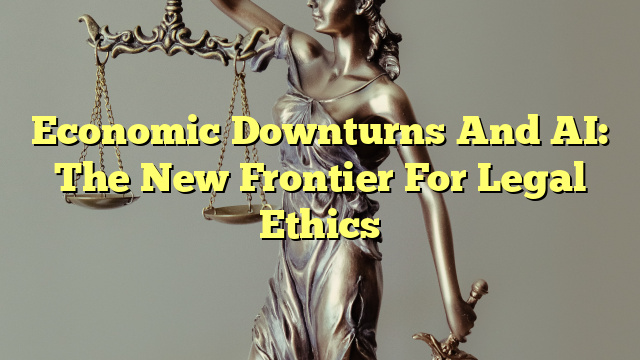Table of Contents
Legal Ethics Issues with AI
As artificial intelligence (AI) continues to advance and become more integrated into various industries, including the legal profession, it raises important ethical considerations. One of the key legal ethics issues with AI is the potential for bias in decision-making algorithms. AI systems are trained on large datasets, which may contain inherent biases. If these biases are not identified and addressed, they can lead to discriminatory outcomes in legal processes.
Another legal ethics concern is the lack of transparency in AI systems. The complexity of AI algorithms and the black box nature of their decision-making processes make it difficult for lawyers and judges to understand and challenge the outcomes. This lack of transparency can undermine the principles of fairness and accountability in the legal system.
Additionally, the use of AI in legal research and document review raises questions about the unauthorized practice of law. While AI can assist lawyers in analyzing large volumes of data and identifying relevant information, there is a risk that relying too heavily on AI systems could lead to the delegation of legal tasks to non-lawyers, potentially violating professional rules and regulations.
Ethical, Legal, and Social Issues of AI
AI technology presents a range of ethical, legal, and social issues beyond just the specific concerns within the legal profession. One of the primary ethical issues is the potential for job displacement. As AI systems become more advanced, there is a risk that they will replace human workers, leading to unemployment and economic inequality.
There are also concerns about privacy and data protection. AI systems often rely on large amounts of personal data to function effectively. The collection, storage, and use of this data raise questions about consent, security, and the potential for misuse or abuse.
Socially, the deployment of AI systems can exacerbate existing biases and inequalities. If AI algorithms are trained on biased data or if they are not designed to be inclusive, they can perpetuate discrimination and reinforce existing power imbalances in society.
Emerging Legal Issues in an AI-driven World
The rise of AI technology has given rise to a host of emerging legal issues. One such issue is liability. As AI systems make decisions and take actions, it becomes necessary to determine who is responsible when something goes wrong. Should the liability rest with the AI system itself, the developers, or the end-users?
Intellectual property is another emerging legal issue. AI systems can generate creative works, such as artwork or music, which raises questions about copyright ownership and infringement. Similarly, the use of AI in research and development may raise patent and trade secret concerns.
Regulation is also a pressing legal issue in an AI-driven world. Governments and regulatory bodies are grappling with how to effectively oversee and govern AI technologies. There is a need for clear and comprehensive regulations that balance innovation and consumer protection.
Legal Impacts of AI
The legal impacts of AI are far-reaching and have the potential to reshape various aspects of the legal profession. AI has the potential to automate routine legal tasks, such as contract review and legal research, which could lead to increased efficiency and cost savings for law firms and clients.
However, the widespread adoption of AI also raises concerns about job displacement and the future of legal employment. As AI systems become more advanced, there is a risk that certain legal roles may become obsolete, leading to significant changes in the legal job market.
AI also has the potential to democratize access to legal services. By automating certain tasks and providing legal information and resources online, AI can help bridge the justice gap and make legal services more accessible to individuals who may not have been

